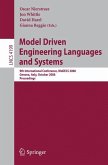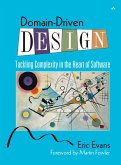The number of methods and tools available to the software engineer nowadays is overwhelming; nevertheless many software projects fail to meet their schedules, are over budget, do not meet the user requirements, or simply have considerable quality defects.
Reinhold Ploesch emphasizes methods, techniques and tools that can be used by typical software engineers in everyday projects. The important requirements for the methods and techniques presented are simplicity, preciseness, generality and expressiveness; the challenge is to develop approaches that are balanced in the sense that all four requirements are fairly equally fulfilled. His approach combines contract and scenario techniques into a consistent methodology that can be used in analysis and design. It can also be combined with prototyping-based software development.
Graduate students and researchers will gain a thorough understanding of contract techniques and related approaches. Professional software engineers will find many techniques applicable in their daily work, as all approaches given are compared with techniques available in the realm of the popular UML language.
What is this Book About? At the beginning of the 21st century, computer systems-and especially so- ware-play an important role in our society. Software is contained in virtually every technical device that we use in everyday life (e.g., cellular phones and cars). Furthermore, computers and their software are used for leisure purposes at home (the Internet and computer games), at the office (e.g., writing letters and order processing), and for more complicated tasks such as controlling steel plants or insuring flight safety. Therefore, the quality of software (e.g., its correctness, re- ability, and efficiency) has become important not only in the context of critical systems (e.g., nuclear power plants) but also for our entire society, from business to leisure. Software engineering is the practical application of scientific knowledge for the economical production and use of high-quality software [Pomberger96]. The discipline aims at developing methods, techniques, tools, and standards to fulfill these aims. The number of methods and tools available to the software engineer nowadays is overwhelming; nevertheless, many software projects fail-that is, do not meet their schedules, are over budget, do not meet the user needs, or simply have considerable quality defects. The numerous possible explanations for this situation include poor project management, unsuitable methods and tools used in the project, and poorly developed skills of the participating software engineers.
Hinweis: Dieser Artikel kann nur an eine deutsche Lieferadresse ausgeliefert werden.
Reinhold Ploesch emphasizes methods, techniques and tools that can be used by typical software engineers in everyday projects. The important requirements for the methods and techniques presented are simplicity, preciseness, generality and expressiveness; the challenge is to develop approaches that are balanced in the sense that all four requirements are fairly equally fulfilled. His approach combines contract and scenario techniques into a consistent methodology that can be used in analysis and design. It can also be combined with prototyping-based software development.
Graduate students and researchers will gain a thorough understanding of contract techniques and related approaches. Professional software engineers will find many techniques applicable in their daily work, as all approaches given are compared with techniques available in the realm of the popular UML language.
What is this Book About? At the beginning of the 21st century, computer systems-and especially so- ware-play an important role in our society. Software is contained in virtually every technical device that we use in everyday life (e.g., cellular phones and cars). Furthermore, computers and their software are used for leisure purposes at home (the Internet and computer games), at the office (e.g., writing letters and order processing), and for more complicated tasks such as controlling steel plants or insuring flight safety. Therefore, the quality of software (e.g., its correctness, re- ability, and efficiency) has become important not only in the context of critical systems (e.g., nuclear power plants) but also for our entire society, from business to leisure. Software engineering is the practical application of scientific knowledge for the economical production and use of high-quality software [Pomberger96]. The discipline aims at developing methods, techniques, tools, and standards to fulfill these aims. The number of methods and tools available to the software engineer nowadays is overwhelming; nevertheless, many software projects fail-that is, do not meet their schedules, are over budget, do not meet the user needs, or simply have considerable quality defects. The numerous possible explanations for this situation include poor project management, unsuitable methods and tools used in the project, and poorly developed skills of the participating software engineers.
Hinweis: Dieser Artikel kann nur an eine deutsche Lieferadresse ausgeliefert werden.








